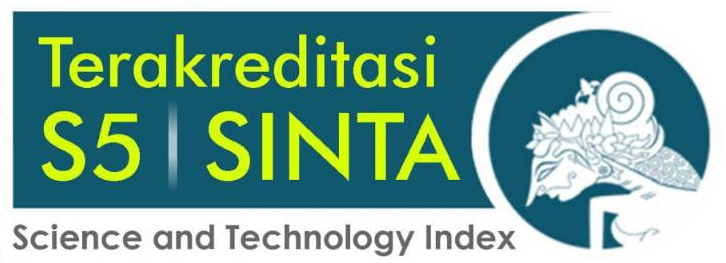Kesiapan Aktor dan Kebijakan dalam Mewujudkan Smart Mobility di Provinsi Bali
DOI:
https://doi.org/10.51172/jbmb.v6i1.429Keywords:
tourism, policies, actors, smart mobilityAbstract
Purpose: As the gateway to Indonesian tourism, Bali needs to transform into a smart city to overcome the complexity of the political environment, social and economic disparities, resolve rigid administrative systems, and increase the effectiveness of city infrastructure. One of the infrastructure problems is in the transportation sector which is caused by limited public transportation facilities to keep up with the increasing use of land as a generator and the use of private vehicles. This research tries to analyze the role of the actors and policies involved and the role of policy, power, interests, the relationship between actors and policies in realizing smart mobility.
Research methods: Data sources for analysis were obtained from secondary data from planning documents and were verified through limited discussions with stakeholders.
Results and discussion: The results obtained by policies related to smart mobility in Bali Province have fulfilled all the components that form smart mobility in Bali Province. Actors with high capabilities and interests include the Inna Group, Electric Vehicle Committee, Transportation Agency, PLN, and GIZ. The analysis of the relationship between policies, actors, and indicators of smart mobility shows that all actors and policies in Bali Province are suitable for realizing smart mobility.
Implication: By recognizing smart mobility, it is hoped that people will get a better quality of life in several aspects: a better environment, better public services, and better economic and employment opportunities.
References
Antara, I. G. M. Y., & Suryana, I. G. P. E. (2020). Pengaruh Tingkat Kepadatan Penduduk Terhadap Indeks Pembangunan Manusia di Provinsi Bali. Media Komunikasi Geografi, 21(1), 63. https://doi.org/10.23887/mkg.v21i1.22958.
Anthony Jnr, B. (2023). Sustainable mobility governance in smart cities for urban policy development – a scoping review and conceptual model. Smart and Sustainable Built Environment, ahead-of-print(ahead-of-print). https://doi.org/10.1108/SASBE-05-2023-0109.
Baccarne, B., Mechant, P., & Schuurman, D. (2014). Empowered Cities? An Analysis of the Structure and Generated Value of the Smart City Ghent. 157–182. https://doi.org/10.1007/978-3-319-06160-3_8.
Bartolozzi, M., Bellini, P., Nesi, P., Pantaleo, G., & Santi, L. (2015). A smart decision support system for smart city. Proceedings - 2015 IEEE International Conference on Smart City, SmartCity 2015, Held Jointly with 8th IEEE International Conference on Social Computing and Networking, SocialCom 2015, 5th IEEE International Conference on Sustainable Computing and Communic, 117–122. https://doi.org/10.1109/SmartCity.2015.57.
Bıyık, C., Abareshi, A., Paz, A., Ruiz, R. A., Battarra, R., Rogers, C. D. F., & Lizarraga, C. (2021). Smart mobility adoption: A review of the literature. Journal of Open Innovation: Technology, Market, and Complexity, 7(2), 1–20. https://doi.org/10.3390/joitmc7020146.
Dameri, R. P. (2017). Smart City Definition, Goals and Performance. 1–22. https://doi.org/10.1007/978-3-319-45766-6_1.
Gironés, E. S., & Vrščaj, D. (2018). Who Benefits from Smart Mobility Policies? The Social Construction of Winners and Losers in the Connected Bikes Projects in the Netherlands. Governance of the Smart Mobility Transition, 85–101. https://doi.org/10.1108/978-1-78754-317-120181006.
Munhoz, P. A. M. S. A., Dias, F. da C., Chinelli, C. K., Guedes, A. L. A., Dos Santos, J. A. N., E Silva, W. da S., & Soares, C. A. P. (2020). Smart mobility: The main drivers for increasing the intelligence of urban mobility. Sustainability (Switzerland), 12(24), 1–25. https://doi.org/10.3390/su122410675.
Orlowski, A., & Romanowska, P. (2019). Smart Cities Concept: Smart Mobility Indicator. Cybernetics and Systems, 50(2), 118–131. https://doi.org/10.1080/01969722.2019.1565120.
Roblek, V. (2019). The smart city of Vienna. In Smart City Emergence: Cases From Around the World. Elsevier Inc. https://doi.org/10.1016/B978-0-12-816169-2.00005-5.
Rocha, J. (2020). Smart Tourism and Smart Destinations for a Sustainable Future BT - Decent Work and Economic Growth (W. Leal Filho, A. M. Azul, L. Brandli, A. Lange Salvia, & T. Wall (eds.); pp. 1–10). Springer International Publishing. https://doi.org/10.1007/978-3-319-71058-7_88-1.
Rzevski, G., Kozhevnikov, S., & Svitek, M. (2020). Smart City as an urban ecosystem. 2020 Smart Cities Symposium Prague, SCSP 2020. https://doi.org/10.1109/SCSP49987.2020.9133849.
Sutriadi, R. (2018). Defining smart city, smart region, smart village, and technopolis as an innovative concept in indonesia’s urban and regional development themes to reach sustainability. IOP Conference Series: Earth and Environmental Science, 202(1). https://doi.org/10.1088/1755-1315/202/1/012047
Toyota Mobility Foundation. (2024). Sustainable Mobility Advancing Real Transformation Ubud Bali.
Urbanus, N., & Febianti. (2017). Analisis dampak perkembangan pariwisata terhadap perilaku konsumtif masyarakat wilayah bali selatan. Jurnal Kepariwisataan Dan Hospitalitas, 1(No.2), 118–133.
Wahda, N. (2021). Penerapan Konsep Smart City di Kabupaten Denpasar, Bali. Kompasiana.
Wicaksana, G. B. A. (2020). Future City Based on Smart Mobility Concept: Character and Benchmarking. Journal of Architectural Research and Education, 2(1), 10. https://doi.org/10.17509/jare.v2i1.24112.
Downloads
Published
How to Cite
Issue
Section
License
Authors who publish with this journal agree to the following terms:
Authors retain copyright and grant the journal right of first publication with the work simultaneously licensed under a Attribution-NonCommercial-ShareAlike 4.0 International (CC BY-NC-SA 4.0) that allows others to share the work with an acknowledgement of the work's authorship and initial publication in this journal.
Authors are able to enter into separate, additional contractual arrangements for the non-exclusive distribution of the journal's published version of the work (e.g., post it to an institutional repository or publish it in a book), with an acknowledgement of its initial publication in this journal.
Authors are permitted and encouraged to post their work online (e.g., in institutional repositories or on their website) prior to and during the submission process, as it can lead to productive exchanges, as well as earlier and greater citation of published work (See The Effect of Open Access).





